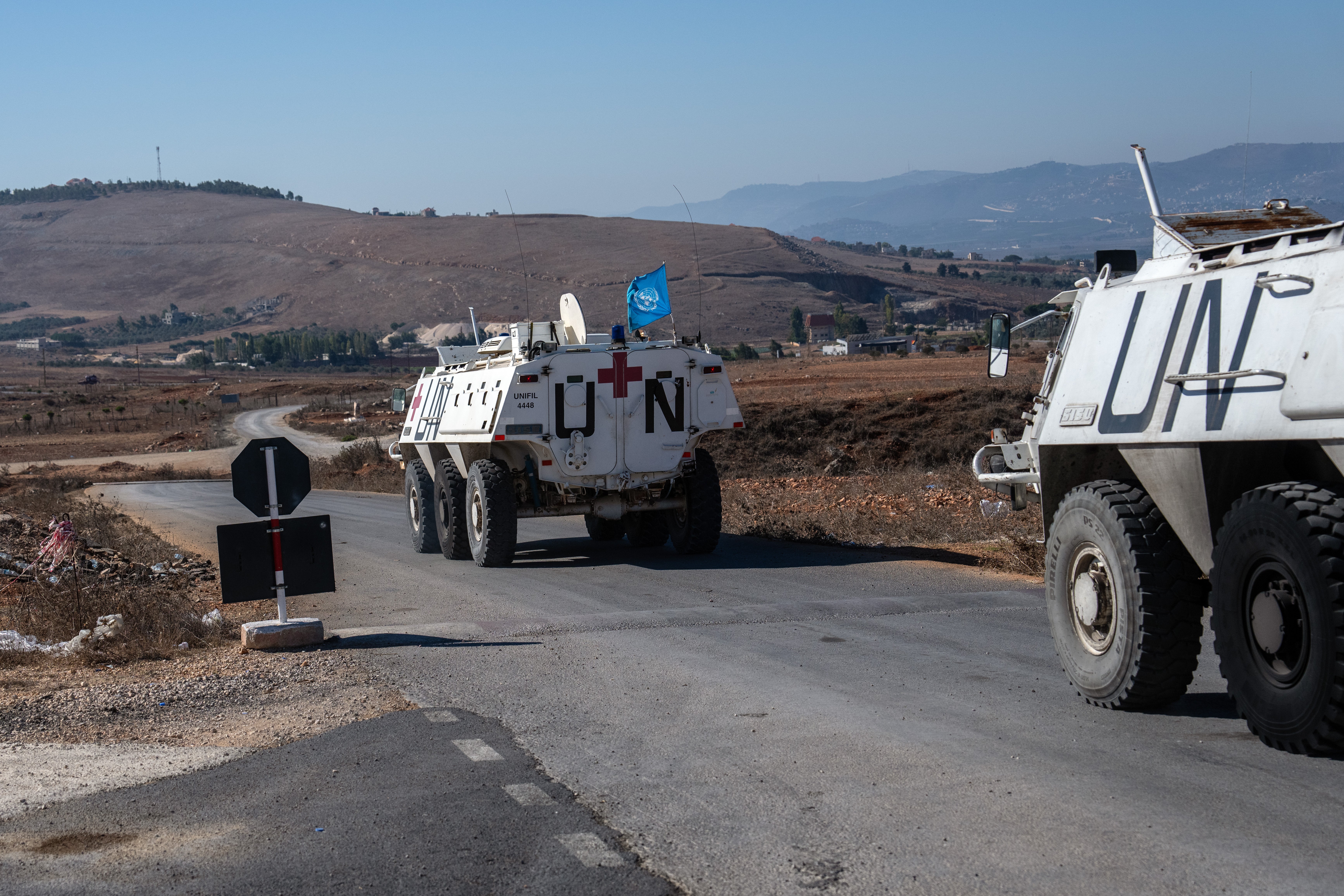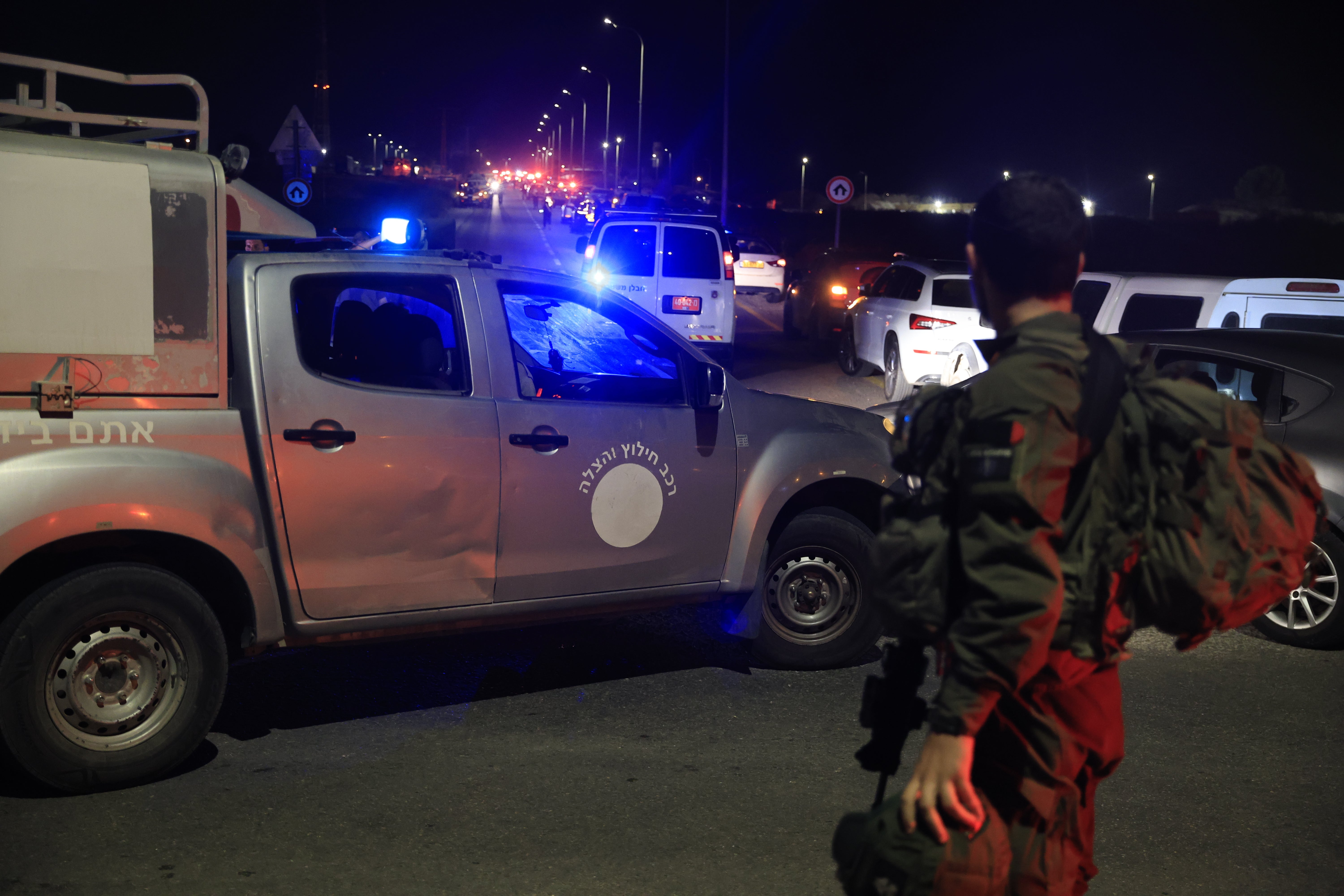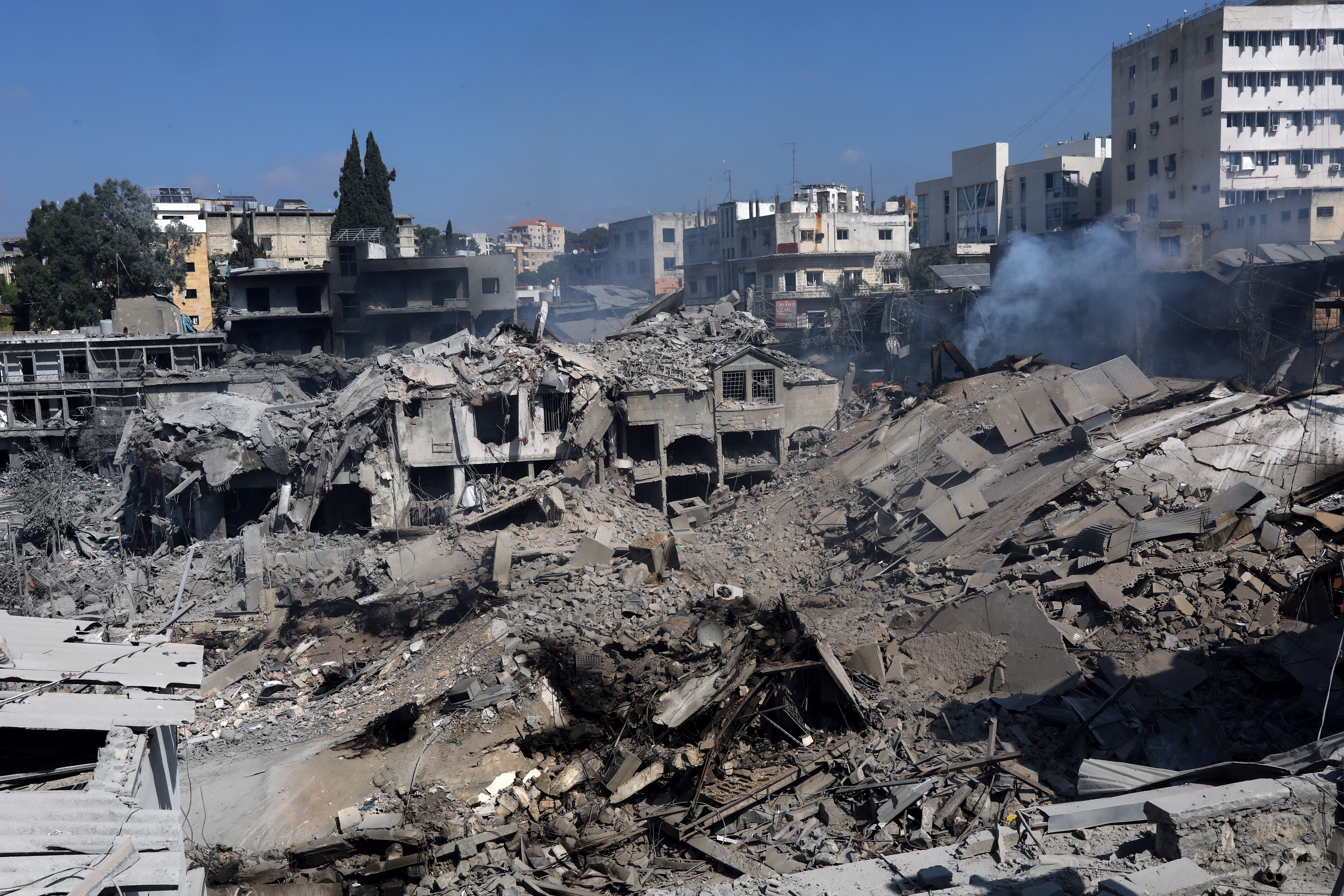UN says Israeli tanks ‘forcibly entered’ base of its peacekeeping force in Lebanon
Benjamin Netanyahu demands Unifil peacekeepers leave while Israel’s own allies denounce attacks
Your support helps us to tell the story
From reproductive rights to climate change to Big Tech, The Independent is on the ground when the story is developing. Whether it's investigating the financials of Elon Musk's pro-Trump PAC or producing our latest documentary, 'The A Word', which shines a light on the American women fighting for reproductive rights, we know how important it is to parse out the facts from the messaging.
At such a critical moment in US history, we need reporters on the ground. Your donation allows us to keep sending journalists to speak to both sides of the story.
The Independent is trusted by Americans across the entire political spectrum. And unlike many other quality news outlets, we choose not to lock Americans out of our reporting and analysis with paywalls. We believe quality journalism should be available to everyone, paid for by those who can afford it.
Your support makes all the difference.Israeli tanks forcibly entered a United Nations peacekeeping force base in southern Lebanon on Sunday, the organisation said, the latest accusation of violations and attacks by the IDF on the UN.
It comes as Israeli prime minister Benjamin Netanyahu demands UN forces leave the area.
The United Nations Interim Force in Lebanon (Unifil) said two Israeli Merkava tanks destroyed and burst through the main gate of a base before dawn on Sunday morning.
After the tanks left, shells exploded 100 metres away, releasing smoke that blew across the base and caused UN personnel to fall sick, with 15 requiring treatment despite wearing gas masks, it said in a statement.
In its version of events, the Israeli military said militants of the Iran-backed group Hezbollah had fired anti-tank missiles at Israeli troops, wounding 25 of them. The attack was very close to a Unifil post and a tank that was helping evacuate the casualties under fire then backed into the Unifil post.
“It is not storming a base. It is not trying to enter a base. It was a tank under heavy fire, mass casualty event, backing up to get out of harm's way,” the military's international spokesperson, Nadav Shoshani, told reporters.

In a statement, the military said it used a smoke screen to provide cover for the evacuation of the wounded soldiers but its actions posed no danger to the UN peackeeping force.
Five peacekeepers have been wounded in a series of strikes in recent days, most blamed by Unifil on Israeli forces.
The UN force said any deliberate attack on peacekeepers was “a grave violation of international humanitarian law and Resolution 1701” that established the mission.
UN secretary general Antonio Guterres warned on Sunday that any attacks against peacekeepers "may constitute a war crime", his spokesperson said.
Earlier in the day, Mr Netanyahu said in a statement addressed to Mr Guterres: “The time has come for you to withdraw Unifil from Hezbollah strongholds and from the combat zones.”
He added: “The IDF has requested this repeatedly and has met with repeated refusal, which has the effect of providing Hezbollah terrorists with human shields.”

Hezbollah on Sunday hit a military base near the Israeli city of Binyamina with a drone. The IDF said four soldiers had been killed and 67 injured, several of them critically.
Meanwhile, the Pentagon announced on Sunday that the United States will send a Terminal High Altitude Area Defence (Thaad) battery and troops to Israel, shortly after Iran warned Washington to keep American military forces out of Israel.
Spokesperson Major General Pat Ryder said in a statement that defence secretary Lloyd Austin authorised the deployment of the Thaad battery at the direction of President Joe Biden.
Maj Gen Ryder said the system will help bolster Israel‘s air defences following Iran’s missile attacks on the country in April and October.
“This action underscores the United States’ ironclad commitment to the defence of Israel, and to defend Americans in Israel, from any further ballistic missile attacks by Iran,” Maj Gen Ryder said.
However, it comes after Mr Austin, in a call with the Israeli defence minister Yoav Gallant on Saturday, expressed “deep concern” about reports Israeli forces had fired on peacekeeper positions. He urged Israel to ensure their safety and that of the Lebanese military, which is not party to Israel’s conflict with Hezbollah.
Italy, France and Spain were among the countries that condemned the reported Israeli attacks on UN peacekeepers, with the Italian government, usually a vocal supporter of Israel, denouncing them as “unacceptable”.

The Israeli military has already told UN peacekeepers to get out of the way, asking them weeks ago to prepare to relocate 5km (3 miles) from the border, according to an excerpt from a message seen by Reuters.
Hezbollah, which Israel has been battling on the ground in southern Lebanon since it launched an incursion at the start of this month, denies Israel's accusation that it uses the proximity of peacekeepers for protection.
The conflict between Israel and Hezbollah resumed a year ago when the Iranian-backed group began firing rockets at northern Israel in support of Hamas at the start of the Gaza war and has sharply escalated in recent weeks.
Israel's assault against Hezbollah over the past three weeks has uprooted 1.2 million Lebanese people and inflicted an unprecedented blow on the group by killing most of its senior leadership.
Lebanon's government says more than 2,100 people have been killed and 10,000 wounded in over a year of fighting, mainly over the past few weeks. The toll does not distinguish between civilians and combatants but includes scores of women and children.
The Middle East meanwhile remains on high alert for Israel to retaliate against Iran for an 1 October barrage of long-range missiles launched in response to Israel's assaults on Lebanon.
Iran said on Sunday it has “no red lines” in defending itself. Foreign minister Abbas Araqchi's comments appeared intended to counter suggestions that Iran would absorb an Israeli strike without a response, as it did earlier this year when Israel last struck Iran after a volley of Iranian missiles.
Later, Revolutionary Guards aerospace commander Amir Ali Hajizadeh said Tehran was ready to respond to any Israeli action, according to the semi-official Tasnim news agency.
Join our commenting forum
Join thought-provoking conversations, follow other Independent readers and see their replies
Comments